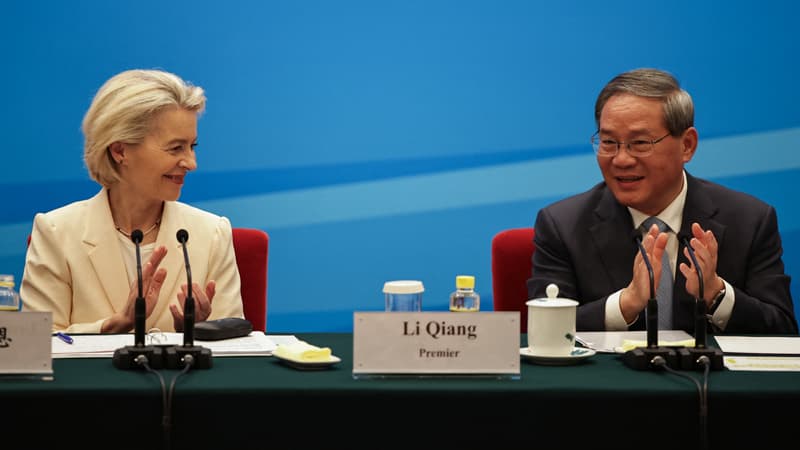The Chinese prime minister, Li Qiang, rejected Brussels fears on Thursday, July 24, for excessive subsidies of Beijing to his national industry, telling EU leaders that China “cannot afford” such expenses.
“China does not practice in any case what some call a fiscal subsidies or subsidies,” Li Qiang said during a round table with the president of the European Commission, Ursula von der Leyen, Thursday.
These words of the Chinese prime minister, particularly direct, were made as part of an EU Summit -organized in Beijing, which promised to be particularly tense due to the deep topics of Ukraine in commerce.
Brussels wanted to express their concern against the subsidies of the Chinese sector to the industry that could distort competition in the European market.
“We would not be stupid enough to use the public funds accumulated by the Government and the hard work of our people to sell our products to foreign consumers,” he added.
The European Commission has caused a series of surveys to evaluate the level of subsidies received by Chinese manufacturers, considering that the rules of free exchange is a sprain. After having identified in the automotive sector, the EU observed customs duties in electric cars produced in China.
An independent study, conducted by an American Research Institute, estimated that the Chinese authorities had injected $ 230 billion (196 billion euros) to support this single sector in less than 15 years. Other European surveys for other goods have been launched, such as wind turbines.
Persistent imbalance
Last year, EU’s commercial deficit with China amounted to around $ 360 billion. But Chinese prime minister believes that this imbalance is not linked to public subsidies.
“Some companies, particularly manufacturing, feel that China’s manufacturing capabilities are too large,” he said, explaining that “factories work 24 hours a day.”
“Some people think that this will cause new problems in the balance between supply and demand for global production,” he added.
The number 2 of the Chinese power also rejected the idea that the economy of the second world is in a poor position, with a slow growth, a risk of deflation and a high unemployment rate among young people.
“Of course, there are difficulties and challenges, but it cannot be said that the Chinese economy is in recession,” he said. “Our GDP growth rate is still more than 5%,” he insisted.
Source: BFM TV


